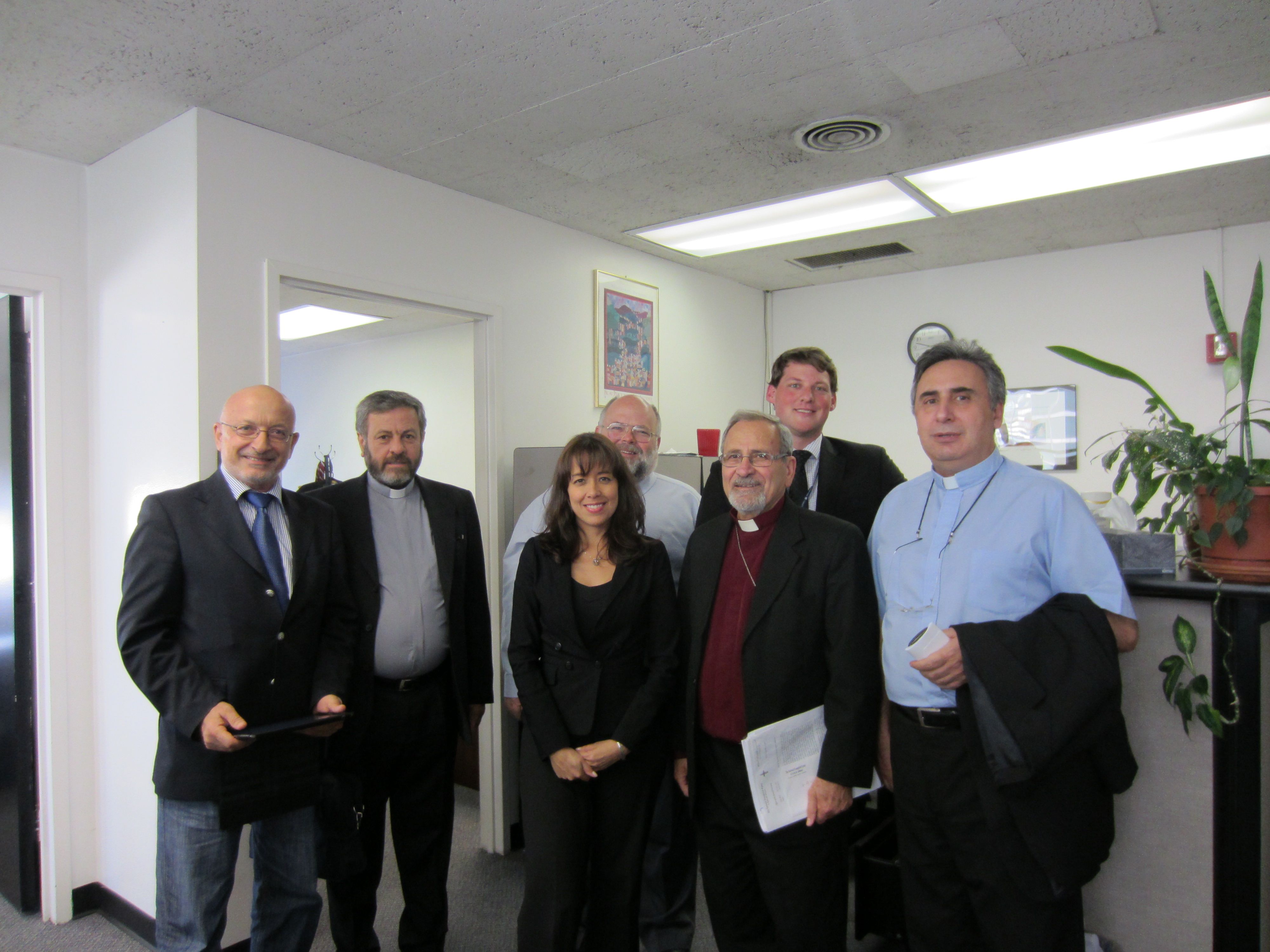
Yesterday, the Presbyterian Ministry at the United Nations welcomed our partners from the National Evangelical Synod of Syria and Lebanon to advocate with governments of the United Nations Security Council. Each representative we met received a package including letters from the Evangelical Synod of Syria and Lebanon, stories of what is happening to Christians in Syria, the PC(USA)’s history in the region as well as a copy of the PC(USA)’s policy adopted by the 220th General Assembly (2012). Presbyterian Disaster Assistance coordinates the PC(USA) response to the humanitarian crisis in Syria.
In each of the missions the delegation visited, we engaged in conversations with staff people responsible for issues related to Syria.
The day began with a conversation about an idea of a power sharing government structure in Syria. The delegation effectively communicated that the opposition in Syria is significantly different than the parties in other regional conflicts. They also communicated the need for a secular government that recognizes and honors minority rights because of a concern for Christians if a fundamentalist Islamic power comes in after President Assad. The staff person shared difficulties in the Security Council stalemate and contacted me with follow-up on the PC(USA) policy that same day.
In the afternoon, at a second mission, we spent time exploring refugee issues. Our delegation shared information on the “new” phenomenon of foreign men coming to refugee camps to buy women (for approximately U.S. $250-$500). These men tell the families that the women will be able to send for their families once they are established in their new home. The staff person was surprised to learn this and committed to sending the information back to the capital to have the government look into the issue further.
At the third meeting, the delegation engaged in productive dialogue around the plight of Christians, the fear of Christians remaining in the region, and the absence of addressing issues related to minority populations in any of the government plans for the future of Syria. The delegation shared a story about Christian pastor who was abducted by the opposition for being clergy and assumed loyalty with Assad. The pastor was released and then having his car shot at by government forces that believed a man to be driving alone to be a suicide bomber. The story quite clearly showed that the Christian population deals with threats from both sides.
We pray that commitments made by governments to listen to the cares of the minority Christian population in Syria will be taken seriously in continued planning. We continue to join our sisters and brothers in prayer for an everlasting peace.